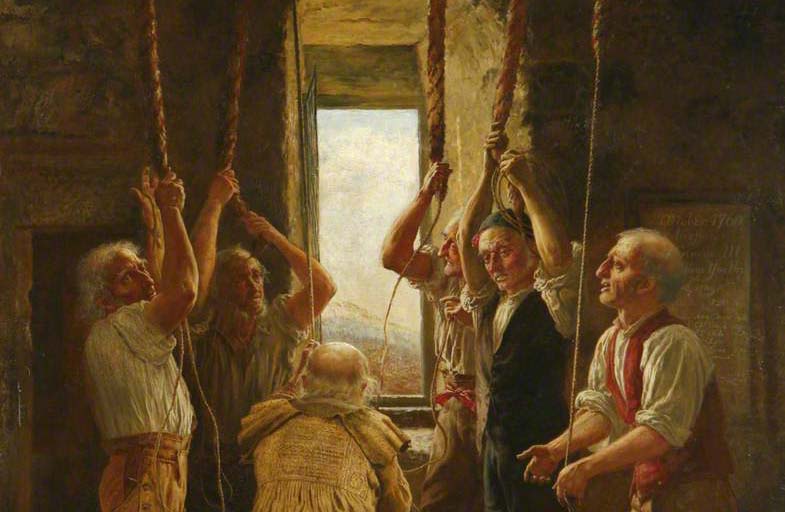Ringing the Changes | History Today - 2 minutes read

Ben Jonson called it ‘the poetry of steeples’. In his Bedfordshire youth, John Bunyan was seduced by, if not addicted to, its pleasures. So ubiquitous was bell ringing in England that Hugh Latimer, the Bishop of Worcester during the Reformation and later Church of England chaplain to King Edward VI, claimed: ‘If all the bells in England should be rung together … there would be almost no place, but some bells might be heard.’ At home and abroad England was called ‘the ringing island’.
Bells had long been part of the English aural landscape. In the eighth century, Bede wrote of a bell sounding a call to prayer at the monastic house at Hackness, near Scarborough. But by the end of the 16th century bell ringing had become a secular pastime and pleasure. A German traveller in 1602 noted that: ‘On arriving in London we heard a great ringing of bells in almost all the churches, going on very late in the evening. We were informed that the young people do that for the sake of exercise and amusements.’ And for gambling too, he was told.
It is out of this milieu that change ringing developed. The first-known secular bell-ringing society, the ‘Schollers of Cheapeside’, was founded on 2 February 1603 (1604 by the modern calendar). The society lasted until 1662, electing new officers each year, although it had a brief interregnum of its own in 1640-41, followed by three years with the same officers ‘in regard of the troubles’ of that decade.
Fabian Stedman, the society’s last treasurer, would go on to publish Richard Duckworth’s Tintinnalogia in 1668, the first book on the art of change ringing. Stedman himself wrote the second, Campanalogia, in 1677, where he fantasised about the more than 479 million changes it is possible to ring with 12 bells.
Not everyone shared Stedman’s zeal. In 1628, the parishioners of Ashby-de-la-Zouch felt compelled to crack down on bell ringers. ‘None shall be allowed to ring for pleasure above twice in the week’, they decreed, ‘and that above the space for an hour at a time.’ No doubt they felt, to use a ringing term, over-belled.
Source: History Today Feed